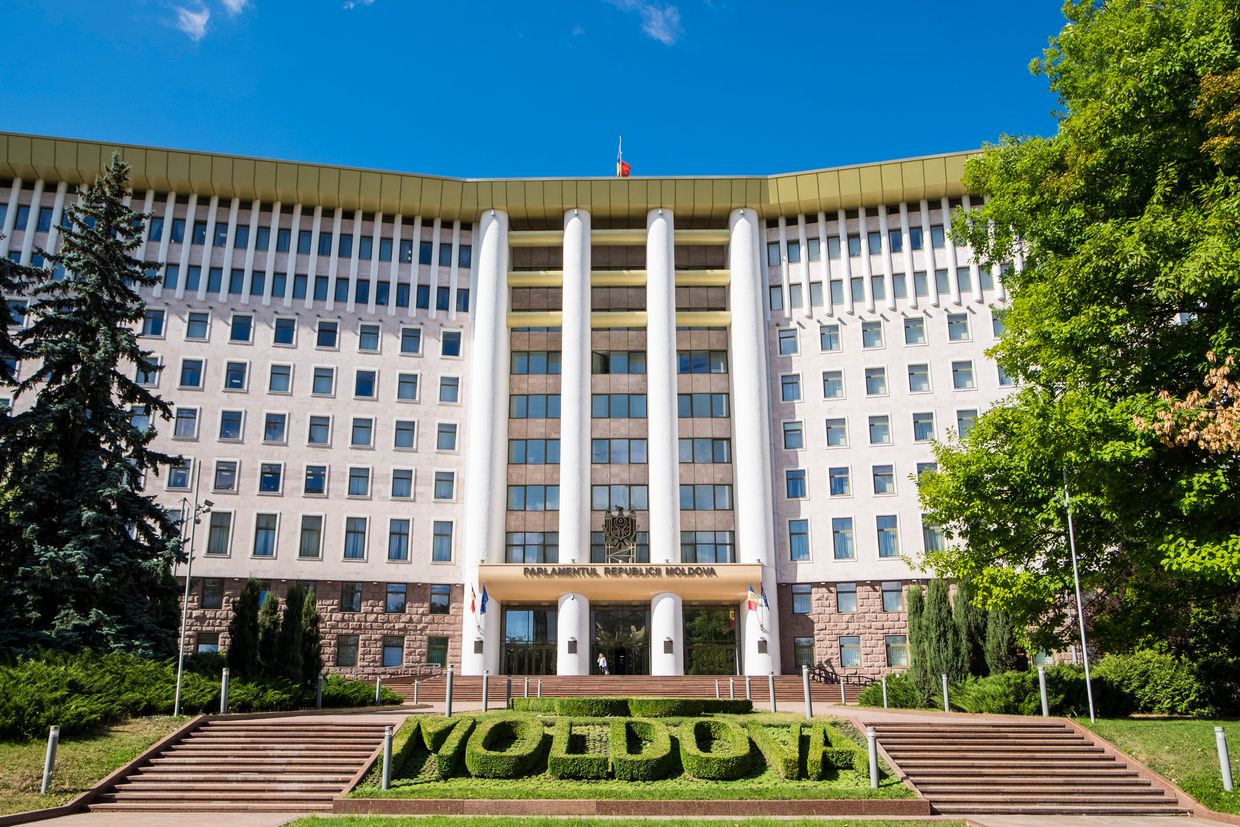Moldova's Sandu advances to presidential run-off, winning after 'unfair fight'

Editor's Note: This article has been updated to include Maia Sandu's comments.
Moldovan President Maia Sandu came in first in the initial round of the country's presidential election on Oct. 20 with 42% of the vote, heading for a run-off on Nov. 3, the Moldovan electoral commission reported.
Pro-EU Sandu will face off against her main competitor, Alexandr Stoianoglo, who is supported by the pro-Russian Party of Socialists and gained roughly 26% of the vote in the first round.
Voters were almost evenly divided on a referendum to enshrine the country's path to European Union accession in the Moldovan constitution. Preliminary results show that the pro-EU voters won by a razor-thin margin, securing 50.16% of the vote against 49.84% who voted "no," the country's electoral commission said.
"The people of Moldova have spoken: our EU future will now be anchored in the constitution," Sandu said on X. "We fought fairly in an unfair fight—and we won. But the fight isn’t over. We will keep pushing for peace, prosperity, and the freedom to build our own future."
The results are based on 99.5% of the counted votes.
The election results have been tainted by allegations of Russian interference, with Moldovan lawmakers claiming that Moscow spent millions of dollars in a campaign to unseat Sandu and vote down the EU referendum.
Moldovan authorities have claimed that over $15 million in Russian funds have reportedly been funneled to over 130,000 Moldovans, with voters instructed on how to cast their ballots in the election. Pro-Russian oligarch Ilan Shor, a Moldovan-Israeli tycoon, was accused of laundering the money and orchestrating the network, despite his own political party being banned.
Sandu decried the alleged interference in a speech at her campaign headquarters on Oct. 20.
"We have clear evidence that these criminal groups aimed to buy 300,000 votes," she said, according to European Pravda.
Sandu called the scheme "a fraud of unprecedented proportions."
The Kremlin's efforts are part of a broader attempt to undermine Moldova's pro-Western leadership. Tensions between Moscow and Chisinau have been mounting since February 2022 amid fears that Russia's war in Ukraine may spill into Moldova via Transnistria, an unrecognized breakaway territory occupied by Russian troops since 1991.
Sandu, a pro-Western politician, has also previously accused Moscow of plotting to overthrow her government in an attempted coup.
The U.S., U.K., and Canada warned of potential Russian interference in Moldova's elections in a joint statement issued on June 13.
"If Russia's election meddling proves unsuccessful in Moldova, there is reason to believe Moscow will work to incite protests," the statement said.
Shortly after the warning, Sandu approved changes to the country's treason laws, allowing some wartime treason laws to apply to peacetime, as well as extending punishments and creating a new category of laws for assisting a foreign state.
Moldova launched EU accession talks in Luxembourg on June 25, the day Ukraine began its long-awaited membership negotiations. The Oct. 20 referendum, if passed, would amend Moldova's constitution to formally include the country's accession to the EU.














